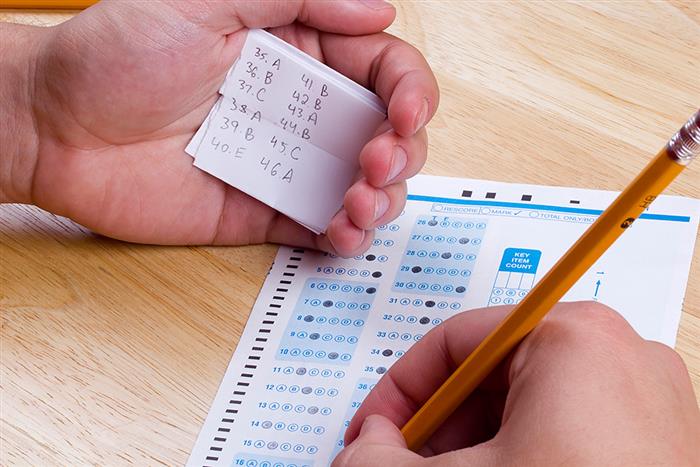
Log In


For $900, you can have a class taken for you and guarantee yourself an "A". Tempted? Academic cheating is now an industry helping online students get the grades they want by doing absolutely nothing. The art of cheating has been taken to a new level, with companies offering services for a price to guarantee students an "A" in their online classes. With the intelligence ingenuity of professional cheating companies, professors fear the growth of the cheating industry and how it degrades online education.
A ten-week study at Western Carolina University addressed the issue, and generated surprising results. Professors Alvin Malesky and Robert Crow created a fake online course, enrolling students with fake names and designating a couple of random students as "cheaters". Those students had to shop around for cheating companies and fool the professors. According to the Chronicle of Higher Education, those students googled keywords like "take my class for me" and "cheat on my online class" and 20 plus companies came up in the results. One student who was successful paid a company upwards of $900 to complete all of his coursework and get an A. To the professors' surprise, the company was successful. These companies have professionals in every field of study, able to effectively complete coursework and avoid plagiarism. Professor Crowe stated that the cheating student’s work was at a higher level, but not enough to "red-flag him". Throughout the study, both professors detected plagiarism, but none were from the students assigned to use a cheating service.
The results raise many concerns for educators, and should raise concerns for employers. The growth of these companies will increase the number of students with false degrees and zero credibility. With the number of students enrolled in online courses, if only a fraction of those students cheated, the number still breaks the ten-thousand mark. The study supports those who believe online courses are not legitimate, and makes it difficult for professors who support online education to effectively teach these courses and make sure their students are prepared for real-world jobs. To address this concern, the study was published with tips on how to catch cheaters, and Malesky cites "awareness" as the best way to detect cheating. With regards to the rise of the cheating industry Malesky says "as of now, there are no mechanisms in place to [effectively] stop it". How do you think this seemingly widespread cheating affects online education? Start a conversation below.